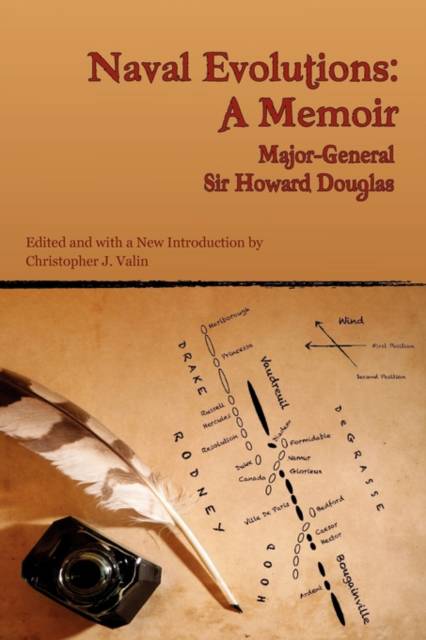
- Afhalen na 1 uur in een winkel met voorraad
- Gratis thuislevering in België vanaf € 30
- Ruim aanbod met 7 miljoen producten
- Afhalen na 1 uur in een winkel met voorraad
- Gratis thuislevering in België vanaf € 30
- Ruim aanbod met 7 miljoen producten
Zoeken
Omschrijving
One of the most revolutionary tactics in naval warfare was developed in the 18th Century, and was called "Breaking the Line." The Royal Navy used it to win fleet engagements ranging from the Battle of the Saints, to Trafalgar. But, who developed it? Years of controversy led to a war of words between supporters of John Clerk of Eldin, Admiral Lord Rodney, and Rodney's captain-of-the fleet, Sir Charles Douglas. In 1832, the latter's son, Sir Howard Douglas, set forth the arguments on behalf of his father in his book Naval Evolutions: A Memoir. He assumed it would be the final word on the matter. It was not. Full of solid evidence, including eyewitness testimony, the book should have laid the issue to rest. Instead, it was largely ignored or dismissed as biased due to the relationship of the author to his subject. But, dismissed or not, the book remains, and the arguments are overwhelming. Fireship Press is proud to revisit this controversy with the release of a new edition of the book, with an introduction by Christopher Valin, perhaps the world's leading expert on the life of Sir Charles Douglas. It's a book that any serious student of naval history will want to read.
Specificaties
Betrokkenen
- Auteur(s):
- Uitgeverij:
Inhoud
- Aantal bladzijden:
- 240
- Taal:
- Engels
Eigenschappen
- Productcode (EAN):
- 9781935585275
- Verschijningsdatum:
- 8/04/2010
- Uitvoering:
- Paperback
- Formaat:
- Trade paperback (VS)
- Afmetingen:
- 152 mm x 229 mm
- Gewicht:
- 326 g

Alleen bij Standaard Boekhandel
+ 69 punten op je klantenkaart van Standaard Boekhandel
Beoordelingen
We publiceren alleen reviews die voldoen aan de voorwaarden voor reviews. Bekijk onze voorwaarden voor reviews.








